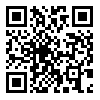مجله رویش روانشناسی از دادن گواهیهای کاغذی معذور است. لطفا تقاضا نکنید. همه گواهی ها در صفحه شخصی کاربران موجود است.
year 10, Issue 12 (winter 2022 2022)
Rooyesh 2022, 10(12): 215-226 |
Back to browse issues page
Ethics code: IR.IAU.AK.REC.1400.009
Download citation:
BibTeX | RIS | EndNote | Medlars | ProCite | Reference Manager | RefWorks
Send citation to:



BibTeX | RIS | EndNote | Medlars | ProCite | Reference Manager | RefWorks
Send citation to:
Asgari A, Azizi ziabari L, Asadi J, Hosseinae A. (2022). Comparison of the effectiveness of couple therapy based on acceptance and commitment and emotionally focused couple therapy on marital forgiveness of women affected by extramarital relationships. Rooyesh. 10(12), 215-226.
URL: http://frooyesh.ir/article-1-3193-en.html
URL: http://frooyesh.ir/article-1-3193-en.html
1- Ph.D Candidate Of Psychology, Department Of Psychology, Faculty Of Human Sciences, Gorgan Branch, Islamic Azad University, Gorgan, Iran.
2- Assistant Professor, Department Of Nursing, Faculty Of Medical Sciences, Gorgan Branch, Islamic Azad University, Gorgan, Iran. ,leila.azizi.2007@gmail.com
3- Assistan Professor, Department Of Psychology, Faculty Of Human Sciences, Gorgan Branch, Islamic Azad University, Gorgan, Iran.
4- Assistant Professor, Department Of Psychology And Educational, Faculty Of Human Sciences, Azadshahr Branch, Islamic Azad University, Azadshar, Iran.
2- Assistant Professor, Department Of Nursing, Faculty Of Medical Sciences, Gorgan Branch, Islamic Azad University, Gorgan, Iran. ,
3- Assistan Professor, Department Of Psychology, Faculty Of Human Sciences, Gorgan Branch, Islamic Azad University, Gorgan, Iran.
4- Assistant Professor, Department Of Psychology And Educational, Faculty Of Human Sciences, Azadshahr Branch, Islamic Azad University, Azadshar, Iran.
Abstract: (1899 Views)
The aim of this study was to compare the effectiveness of couple therapy based on acceptance and commitment (ACT) and emotionally-focused couple therapy (EFCT) on marital forgiveness of women affected by extramarital relationships. The method of the present study was semi-experimental with pre-test and post-test with a control group. The statistical population included all women affected by extramarital relationships who were referred to counseling centers in Gorgan in the first 9 months of 1399 Using the purposive sampling method, 45 people were selected, and then They were randomly divided into three groups of 15 people. The first experimental group received emotionally-focused couple therapy and the second experimental group received couple therapy based on acceptance and commitment in 12 sessions of 90 minutes twice a week. The research instrument was the Marital Forgiveness Questionnaire (MFQ) of Ray et al. (2001). Data were analyzed by repeated-measures analysis of variance using SPSS-16 software at a significance level of 0.05. Both approaches of EFCT and ACT have a significant effect on marital forgiveness in the post-test and follow-up stages (P <0/01). The results also showed that acceptance and commitment-based couple therapy had a greater effect on marital forgiveness (P=0/002), presence of positive (P=0/001), and absence of negative (p=0/014) than emotionally-focused couple therapy. As a result, both interventions can be used to increase marital forgiveness but given the greater effectiveness of acceptance and commitment-based couple therapy, this approach is preferred.
Keywords: Couple Therapy Based on Acceptance and Commitement, Emotionallay-Focused Couple Therapy, Marital Forgiveness.
Type of Article: Research |
Subject:
Family Psychology
Received: 2021/09/16 | Accepted: 2021/12/17 | ePublished: 2022/03/1
Received: 2021/09/16 | Accepted: 2021/12/17 | ePublished: 2022/03/1
Send email to the article author
| Rights and permissions | |
 |
This work is licensed under a Creative Commons Attribution-NonCommercial 4.0 International License. |







